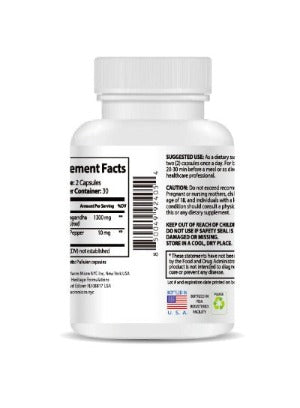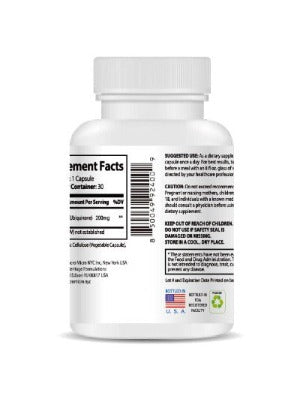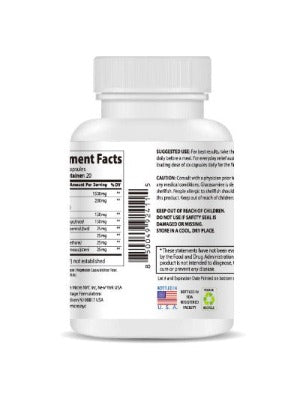The Profound Impact of Diet on Dry Eye Syndrome
Dry eye syndrome, a prevalent and often debilitating condition affecting millions worldwide, presents a significant challenge to comfort and visual acuity. In 2025, the understanding of dry eye syndrome has evolved beyond simple topical treatments. While lubricating eye drops and other therapies remain valuable tools, the crucial role of nutrition in preventing, managing, and potentially even reversing the progression of dry eye syndrome is increasingly recognized. This comprehensive guide delves into the intricate relationship between diet and eye health, exploring the underlying mechanisms of dry eye, outlining nutritional strategies, emphasizing lifestyle modifications, and highlighting supportive products to optimize your eye health journey. We’ll uncover how strategic dietary changes can significantly alleviate symptoms and promote long-term eye well-being, empowering you to take control of your ocular health.
Understanding the Mechanisms of Dry Eye Syndrome: A Deeper Dive
Dry eye syndrome, often abbreviated as DES, is a multifactorial condition characterized by an imbalance in the production, composition, or evaporation of tears. This imbalance leads to a spectrum of symptoms, ranging from mild discomfort to severe visual impairment. The tear film, a complex mixture of water, lipids, and mucins, plays a critical role in maintaining the health of the ocular surface. When the tear film is insufficient or of poor quality, the cornea and conjunctiva (the outer surface of the eye and the membrane lining the eyelids) become dry, leading to inflammation and damage. This process can be further exacerbated by environmental factors, such as air pollution and excessive screen time, and underlying medical conditions. However, it's important to acknowledge the pivotal role that nutritional deficiencies can play in contributing to the development and progression of dry eye.
The Nutritional Cornerstones of Eye Health: Essential Nutrients and Their Sources
The health of the eyes, including tear production and tear film stability, is intimately linked to overall nutritional status. Several key nutrients have been identified as playing crucial roles in preventing and managing dry eye syndrome. By consciously incorporating these nutrients into your daily diet, you can significantly support the health of your ocular surface and alleviate dry eye symptoms.
- Omega-3 Fatty Acids: The Anti-Inflammatory Powerhouse: Omega-3 fatty acids, specifically EPA (eicosapentaenoic acid) and DHA (docosahexaenoic acid), are essential fatty acids with potent anti-inflammatory properties. They play a crucial role in reducing inflammation on the ocular surface, a key component of dry eye syndrome. Excellent sources of omega-3s include fatty fish (salmon, mackerel, tuna), flaxseeds, chia seeds, and walnuts. Aim for at least two servings of fatty fish per week.
- Vitamin A (Retinol): A Cornerstone for Ocular Health: Vitamin A is essential for maintaining the integrity of the cornea and conjunctiva. It plays a vital role in the production of mucins, a component of the tear film that helps lubricate and protect the eye surface. Good sources of vitamin A include sweet potatoes, carrots, spinach, kale, and liver. Ensure you're getting sufficient vitamin A through a well-balanced diet.
- Vitamin C (Ascorbic Acid): The Antioxidant Shield: Vitamin C is a powerful antioxidant that neutralizes damaging free radicals, protecting the delicate eye tissues from oxidative stress, a factor that can contribute to the development of dry eye. Excellent sources include citrus fruits, strawberries, blueberries, bell peppers, and broccoli. Incorporate these antioxidant-rich foods into your diet regularly.
- Vitamin D: A Growing Area of Research: Recent research indicates a potential link between vitamin D deficiency and an increased risk of dry eye. While sunlight exposure contributes to vitamin D production, dietary sources such as fatty fish, egg yolks, and fortified foods ensure you achieve optimal vitamin D levels, potentially reducing your risk of dry eye.
- Vitamin E (Tocopherol): Protecting Against Oxidative Damage: Vitamin E, like vitamin C, is an important antioxidant that helps protect against oxidative stress and inflammation in the eye. Good sources include nuts, seeds, avocados, and spinach. Including these foods in your diet enhances your eyes' natural defense mechanisms.
- Zinc: Supporting the Immune System: Zinc plays a crucial role in immune function and the health of the ocular surface. Deficiencies can impair the body's ability to fight off infection, potentially exacerbating dry eye symptoms. Excellent dietary sources of zinc include oysters, red meat, poultry, beans, and nuts.
Beyond these specific micronutrients, maintaining adequate hydration is paramount. Dehydration can significantly impact tear production, making dry eye symptoms worse. Aim for consistent hydration throughout the day by drinking plenty of water, adjusting your intake based on your activity level, climate, and overall health.
Lifestyle Adjustments and Complementary Strategies for Enhanced Results
While nutritional strategies form the foundation of managing dry eye syndrome, complementary lifestyle modifications can significantly enhance their effectiveness. Integrating the following adjustments into your routine can provide synergistic benefits:
- Reduce Screen Time: Excessive screen time is a major contributor to dry eye, leading to decreased blink rates and increased tear evaporation. Implement the 20-20-20 rule: every 20 minutes, look at an object 20 feet away for 20 seconds. Regular breaks and the use of blue light-filtering glasses can offer significant relief.
- Maintain a Humid Environment: Dry air significantly accelerates tear evaporation. Use a humidifier, especially in dry climates or during winter months, to maintain optimal moisture levels in your surroundings.
- Protect Your Eyes from Environmental Irritants: Wind, sun, and dust can all irritate the eyes and exacerbate dry eye symptoms. Wear protective eyewear when outdoors, especially during windy or dusty conditions, and use sunglasses to shield your eyes from harmful UV rays.
- Manage Stress Levels: Chronic stress can negatively impact overall health, including eye health. Stress management techniques, such as yoga, meditation, and deep breathing exercises, can promote overall well-being and potentially alleviate dry eye symptoms.
- Quit Smoking: Smoking is a known risk factor for dry eye syndrome and can exacerbate existing symptoms. Quitting smoking is beneficial for your overall health and can significantly improve your ocular health.
In addition to these lifestyle adjustments, you may want to incorporate targeted support for your dry eyes. The Wise Quest Soothing Eye Patches - 3-Month Wellness Pack provides a convenient and effective way to complement your dietary and lifestyle efforts. These non-toxic patches, crafted with nature's finest ingredients, offer soothing relief from chronic dryness and strain, promoting long-term eye health. They are especially beneficial for individuals who experience prolonged screen time or live in dry environments. They provide a gentle, hydrating, and comforting experience that can be used daily as part of a comprehensive dry eye management plan.

Investing in the Wise Quest Soothing Eye Patches - 3-Month Wellness Pack allows for consistent, targeted care that complements a healthy diet and lifestyle. This 3-month supply ensures ongoing support for your eyes’ well-being.
Conclusion: A Holistic Approach to Dry Eye Management in 2025
Dry eye syndrome is a complex condition requiring a comprehensive management approach. While various therapies and medications exist, the role of nutrition and lifestyle modifications cannot be overstated. By prioritizing a diet rich in omega-3 fatty acids, vitamins A, C, D, and E, zinc, and maintaining adequate hydration, you can significantly support your eye's health. Complementing this with lifestyle adjustments, such as reducing screen time, maintaining humidity, and protecting your eyes from environmental irritants, forms a robust approach to combating dry eye. The Wise Quest Soothing Eye Patches - 3-Month Wellness Pack offers a supportive element to this holistic strategy, providing soothing relief and promoting long-term eye comfort. Remember to consult your eye care professional for a personalized assessment and treatment plan tailored to your specific needs. Proactive measures combined with targeted support can lead to significant improvements in your eye health and overall well-being.









